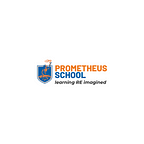What is Theory of Knowledge (TOK) in IB curriculum?
In the International Baccalaureate (IB) curriculum, the Theory of Knowledge (TOK) is a unique and interdisciplinary course that challenges students to explore the nature of knowledge, its limits, and its significance in various areas of human understanding. As a critical component of the IB Diploma Programme, TOK provides students with a framework to critically analyze and evaluate knowledge claims, develop critical thinking skills, and engage in reflective and metacognitive learning.
Let us immerse into the fascinating world of TOK, exploring its key elements, objectives, and impact on students’ intellectual growth.
TOK is based on several key elements that form the foundation of the course:
Areas of Knowledge (AOK): TOK acknowledges that knowledge is diverse and is organized into distinct areas, such as Mathematics, Natural Sciences, Human Sciences, History, Ethics, Arts, and Indigenous Knowledge Systems. Students explore the nature, methods, and limitations of these areas of knowledge, critically analyzing how knowledge is constructed, justified, and disseminated in different domains. For example, students may examine the criteria for establishing scientific theories in the Natural Sciences, or evaluate the cultural and historical contexts that shape our understanding of History.
Ways of Knowing (WOK): TOK identifies that knowledge is acquired and shared through different ways of knowing, such as Perception, Reason, Emotion, Language, Memory, Intuition, and Faith. Students investigate the role of these ways of knowing in shaping our understanding of the world, evaluating their strengths, limitations, and biases. For instance, students may explore how perception can be influenced by cultural or individual biases, or how emotions can impact decision-making processes.
Knowledge Questions (KQ): At the heart of TOK are knowledge questions, which are open-ended, thought-provoking questions that challenge students to critically examine the nature of knowledge. Students learn to formulate, analyze, and evaluate knowledge questions, which serve as a guiding framework for their exploration of various areas of knowledge and ways of knowing. For example, students may investigate questions such as “How do we determine what is true or false in different areas of knowledge?” or “To what extent does language shape our perception of reality?”
TOK has several objectives that are designed to foster critical thinking, reflection, and metacognition in students. These include:
Developing critical thinking skills: TOK encourages students to think critically and evaluate knowledge claims by examining evidence, identifying biases, and considering multiple perspectives. They learn to distinguish between reliable and unreliable sources of knowledge, and develop skills to critically analyze and evaluate information in a rigorous and systematic manner. This critical thinking approach equips students with the ability to discern the quality of knowledge and make informed judgments in different contexts, such as academic research, media consumption, and decision-making in real-world situations.
Encouraging reflection and metacognition: TOK emphasizes the importance of reflection and metacognition in the process of acquiring knowledge. Students reflect on their own thinking processes, biases, and assumptions, and are encouraged to become aware of the limitations and uncertainties inherent in the pursuit of knowledge. This reflective approach promotes self-awareness, intellectual humility, and open-mindedness in students. Through metacognition, students develop the ability to monitor and regulate their own thinking, becoming more strategic and effective learners in all areas of their academic and personal lives.
Fostering interdisciplinary thinking: TOK promotes interdisciplinary thinking by encouraging students to make connections between different areas of knowledge and ways of knowing. Students learn to integrate knowledge from various disciplines, critically analyze interdisciplinary issues, and appreciate the complexity and interconnectedness of knowledge. This interdisciplinary approach helps students develop a holistic understanding of the world and prepares them to address complex and multifaceted challenges in their academic and professional lives.
Cultivating global-mindedness: TOK encourages students to develop a global perspective and appreciate the diversity of knowledge systems and perspectives from different cultures and societies. Students learn to critically evaluate knowledge claims from multiple cultural, social, and historical contexts, and develop an awareness of the influence of cultural and contextual factors on the construction of knowledge. This promotes empathy, tolerance, and respect for diverse viewpoints, and prepares students to be responsible global citizens who can navigate and contribute to an increasingly interconnected and complex world.
To sum it up, the Theory of Knowledge (TOK) is a unique and essential course in the IB curriculum that challenges students to critically examine the nature of knowledge, develop critical thinking skills, and engage in interdisciplinary and reflective learning. At Prometheus School which is a top international school in noida. we recognize the value of TOK in equipping students with valuable skills and perspectives that extend beyond their academic studies. It equips students with valuable skills and perspectives that extend beyond their academic studies, preparing them to be critical thinkers, reflective learners, interdisciplinary thinkers, and responsible global citizens.
